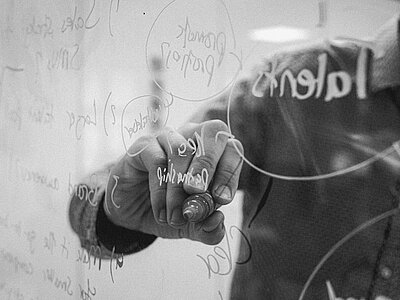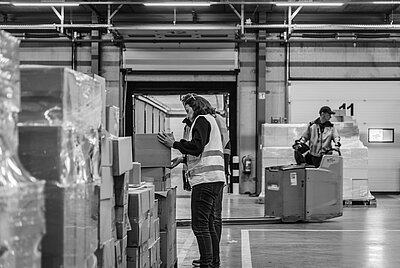Commit to carbon neutrality
Don’t be afraid to set ambitious goals to achieve carbon neutrality across your operations, supply chains, and product lifecycles. It may seem daunting now, but finding the right partners that enable you to do this will be transformational.
Build a circular economy
Don’t just think short-term. Invest your time and energy into building a circular economy model for your operations and your stores. That means focusing on your product ranges and their lifecycle, opportunities for re-use and refurbishment, and in-store recycling programmes. A circular economy will enable you to minimise waste up and down your supply chain and bring your stores in-line with your operational efforts to become more sustainable. Speak to your supply partners to see if there are products or solutions that can help with this. For example, Worldpack is now offering a range of grass coat hangers that have been created to work in a retail environment but as part of the circular economy, the total amount of hangers being produced will be reduced over time.
Supply chain transparency and accountability
We’ve already touched upon the power of localisation to bring sustainable benefits to your supply chain. But more than that, you need to be deeply collaborating with your suppliers to ensure transparency and accountability. We know that retailers’ supply chains are responsible for 25% of global emissions. Knowing how they operate is crucial for you being able to report with authority on your own impact and be confident that they are following ethical practices. Becoming selective with your suppliers, demanding high standards and sustainable sourcing practices is essential for long-term impact and your brand reputation.
Engage with your community
Retail brands can often feel removed from local levels of engagement. But engaging with local communities where you have retail outlets can show your commitment to improving the environment for all. And this is hugely powerful for brand loyalty and customer engagement. Sponsoring environmental education programs, getting staff to participate in conservation efforts, and donating to environmental causes can all help to show your commitment to long-term change and offset your impact. London-based sandwich shop chain, Pret A Manger donates to UK-wide sustainable causes to demonstrate its commitment to sustainability and help offset their own impact. Speak to your GNFR partner to see what opportunities there are to incorporate Earth Month pop up fixtures in your stores or what products you can swap out for more eco-friendly alternatives.
Earth Month is a reminder that retailers have a huge role in contributing meaningfully to a greener, more sustainable future.
By thinking long-term, you can embed sustainability into your business strategy - mitigating environmental risks and capitalising on market opportunities driven by sustainability.
If you’re ready to start taking sustainability seriously, we’re here to help you with our Service with Guts. Speak to our team on +31 (0) 88 494 20 80 or email us at online@worldpack.eu


